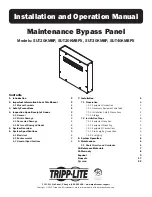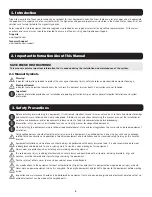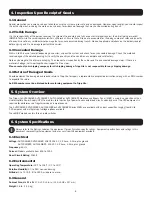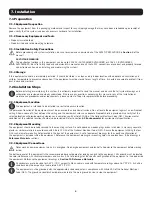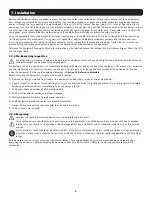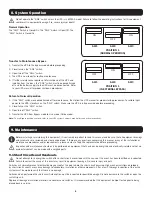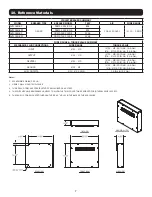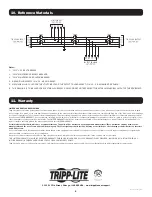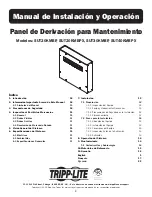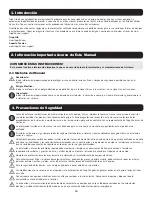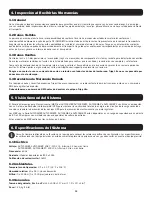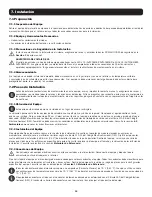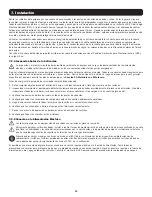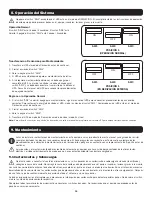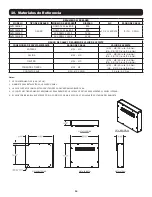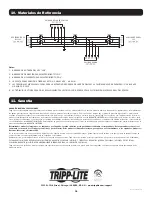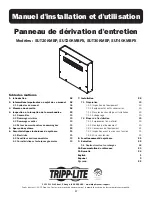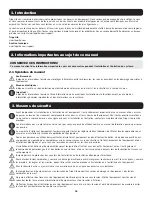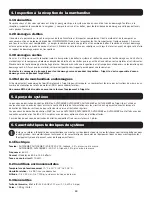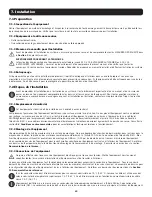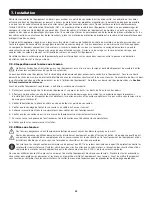
6
8. System Operation
9. Maintenance
Do not operate the “SW2” switch unless the UPS is in BYPASS mode! Failure to follow the operating instructions for this equipment
could result in equipment damage, fire, severe injury or death!
ON
OFF
ON
OFF
OFF
ON
ON
OFF
ON
OFF
OFF
ON
Normal Operation
The “SW1” Switch is Closed/On. The “SW2” Switch is Open/Off. The
“SW3” Switch is Closed/On.
Transfer to Maintenance Bypass
1. Transfer the UPS to the Bypass mode before proceeding.
2. Close/turn on the “SW2” switch.
3. Open/turn off the “SW3” switch.
4. The UPS is now ready for routine maintenance.
5. If further maintenance requires a total shutdown of the UPS and
isolation from the input, the “SW1” switch must be opened/turned
off and the battery supply to the UPS must be disconnected. Refer
to your UPS manual for proper shutdown procedures.
Return to Normal Operation
1. If the “SW1” switch was opened/turned off for maintenance, then follow the UPS manual for proper startup procedures. To restore input
power to the UPS, close/turn on the “SW1” switch. Make sure the UPS is in Bypass mode before proceeding.
2. Close/turn on the “SW3” switch.
3. Open/turn off “SW2” switch.
4. Transfer the UPS from Bypass mode to Line mode (Online mode).
Note:
To use Bypass position contacts, refer to your UPS system’s owner’s manual for connection instructions.
SW1
SW1
SW2
SW2
POSITION 1
(NORMAL OPERATION)
POSITION 1
(IN EXTERNAL BYPASS)
SW3
SW3
Before installing or maintaining this equipment, it is extremely important to read this manual and be sure that all equipment drawings
and schematics are reviewed and clearly understood. If there are any questions concerning this manual or any of the installation or
maintenance procedures and/or requirements, please contact a Tripp Lite representative before proceeding.
Inspection and maintenance should only be performed on equipment that has been de-energized and electrically isolated so that no
accidental contact can be made with energized parts.
9.1 Short Circuits and Overloads
Do not attempt to re-energize a switch after a short circuit or overload until the cause of the event has been identified and corrected.
Failure to correct the cause of the event may result in equipment damage, fire, severe injury or death.
Switches will normally prevent electrical damage except at the point where the short circuit occurred. High mechanical stress developed
by short circuit currents may cause damage to conductors, insulation or other components. After a fault, thorough inspection of the entire
system must be made to verify that there is no damage.
Switches which performed the short circuit interruption must be inspected for possible damage. Do not disassemble the switch or open the
switch trip unit.
Replace all damaged insulation materials, conductors and switches. It is recommended that the equipment be hipot tested prior to being
placed back in service.

